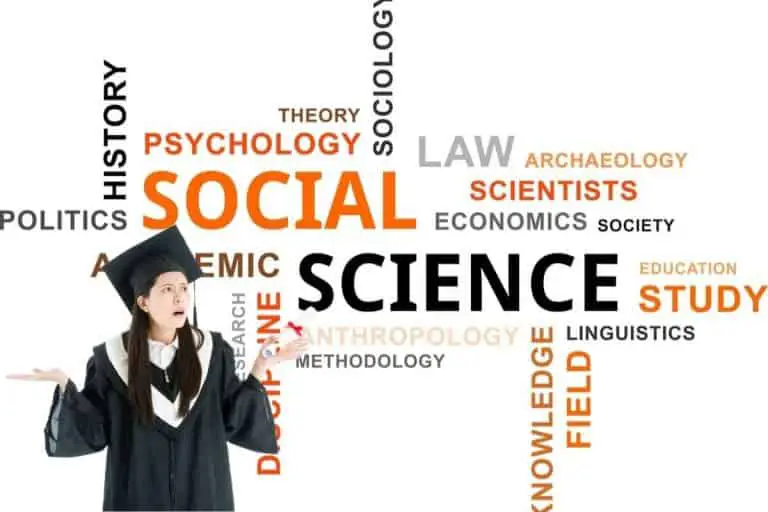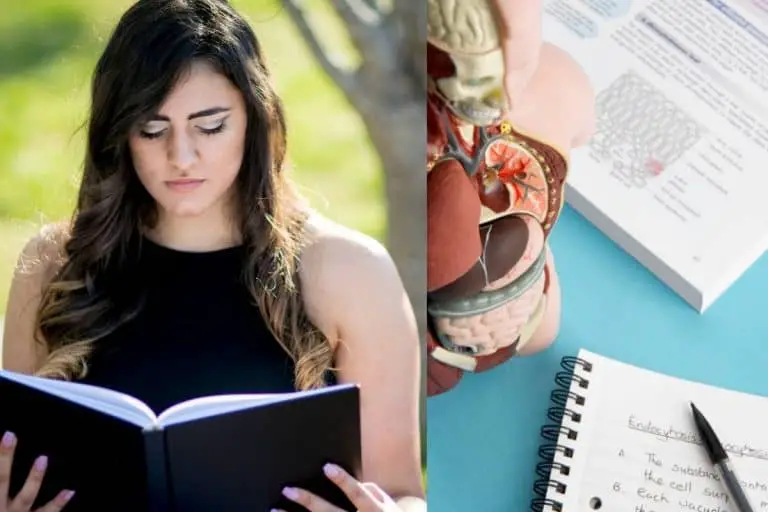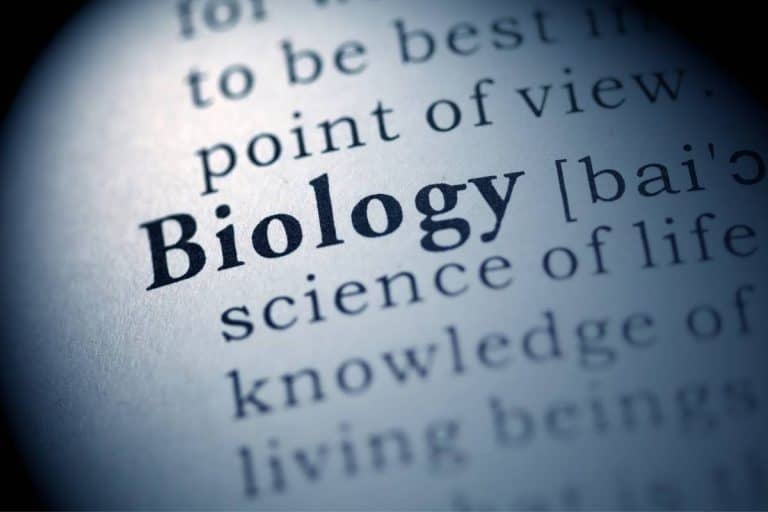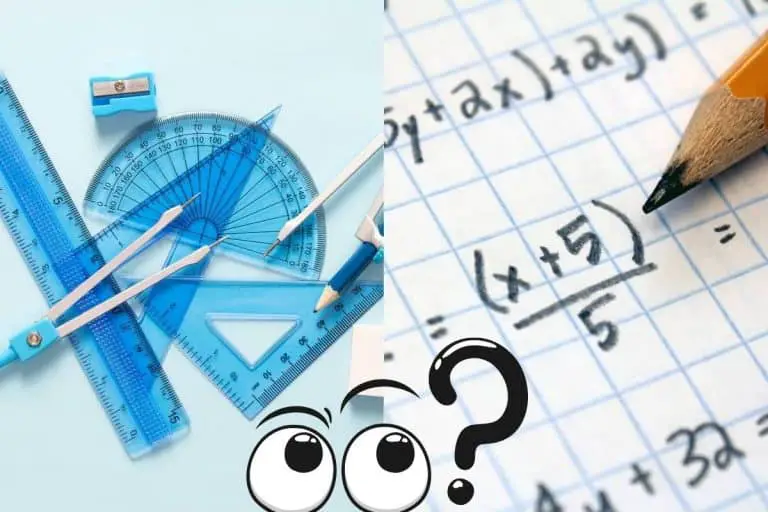Is Forensic Science Hard? Let’s Investigate!
Forensic science is a discipline that combines knowledge of molecular biology and chemistry with law. Forensic science may also deal with archeology, anthropology, or several different related fields. Because it spans so many different fields in such detail, you may wonder whether forensic science will be a hard course or major.
Forensic science is hard, but you can do things to make the course(s) manageable. It involves heavy laboratory work and field requirements, which add to the challenge of the degree; however, they also add to the richness of the educational experience.
Read on to learn more about why forensic science is so challenging and what you can do to prepare for a class or degree in the field.

What Makes Forensic Science Challenging
Forensic science is a challenging field, combining elements of many different disciplines into one science.
So, naturally, courses in forensic science are typically quite hard. Usually, they involve intense problem-solving, writing, and thinking. It involves a lot of specialized laboratory work, and it’s best to take after having had plenty of other science and humanities courses.
Forensic science is much more challenging at the college level than at the high school level. There is no AP course in forensic science, although it is intended for students with a strong science background.
Some students see it as an alternative to harder AP science courses but be warned that it will likely still be challenging.
Studying Forensic Science at the College Level
Studying forensic science at the college level involves a deep understanding of biology and chemistry and an understanding of the law and criminal investigation techniques.
Although the specific courses you’re required to take may vary according to your concentration, the following are the hardest courses you’ll find in forensic science at the college level, ranked by Best Value Schools.
Criminalistics: Trace and Impression Evidence
Criminalistics: Trace and Impression Evidence focuses on analyzing evidence and applying forensic microscopy to actual cases. Students learn to evaluate and compare evidence, both through lectures and through laboratory work.
Forensic Molecular Biology
Forensic Molecular Biology is focused on forensic DNA testing and analysis, and students must have a thorough understanding of what DNA is and how it works. The course involves both direct laboratory work testing and analyzing DNA and lectures about the theory behind the practice.
Chromatography and Electrochemistry
Chromatography and Electrochemistry teach students how to do effective lab work, with instructors grading the students’ laboratory notebooks in great detail. The coursework also involves heavy calculus and algebra that instructors expect you to complete outside of lecture or lab time.
Drug Chemistry and Toxicology
Drug Chemistry and Toxicology involve pharmacodynamics and other intensive, advanced chemistry concepts. You can expect a lot of reading and difficult laboratory work for this class, studying things like how drug exposure happens to gas chromatography.
Historic Forensic Identification
Historic Forensic Identification combines molecular biology with archeology and anthropology, using case studies to help students understand how forensic science contributes to identifying and processing historical artifacts. Most courses in this area involve both exams and a major final project.
This YouTube video interview gives a great overview of forensic science studies and what it may be like once you are employed:
Is It Worth Studying Forensic Science?
Studying forensic science is worth studying, as it will teach you to view the world with care and a logical problem-solving lens, so taking a forensic science course is useful no matter what you want to do for a living.
However, a forensic science course or major is extremely helpful if you want to have a career in the field. Because it is helpful, should you take the course even if you don’t plan on going into this as a career?
Let’s take a look at the answer in detail.
Is Forensic Science Useless?
Forensic science as a discipline is key to understanding and evaluating crimes. Those who study it play a role in one of the most important processes in our criminal justice system. It’s important that whoever takes on this role takes it seriously and commits to doing it well.
Forensic science is not useless to study, even if you aren’t sure what career you’re interested in. It teaches you to be aware of how our criminal justice system operates and teaches valuable skills in biology, chemistry, and laboratory work that can be used in various areas.
That said, there are many different careers in forensic science. If you’re interested in studying forensic science, it’s a good idea to look into these career options to see what might spark your interest.
Careers in Forensic Science
One thing to think about if you want to go into Psychology is to be a Forensic Psychologist. Why?
Forensic psychologists need to be experts in human brain development and pathology, understanding how people respond in different situations. Social psychology is especially helpful for forensic psychologists to understand.
The following are common career paths in the field of forensic science:
- Forensic pathologists: They are also called medical examiners, and their job revolves around performing autopsies and figuring out the facts surrounding a person’s death. A forensic pathologist or medical examiner will process and analyze the tissues and organs of a dead person to find out these details.
- Crime scene investigators: They sometimes work for the police and sometimes as private investigators, looking over crime scenes for evidence and gathering information like fingerprints and other physical clues that can be analyzed in a laboratory setting.
- Crime laboratory analysts: They look at the evidence brought in by crime scene investigators and evaluate things like blood, fibers, and other clues that might hold DNA. These clues are used as evidence in criminal investigations.
- Forensic psychologists: They study how human behavior interacts with the law, assessing witnesses to determine which statements are truthful and which may not be.
- Forensic engineers: They look into why devices or substances fail, and they often play a role in lawsuits over faulty consumer products. They need to be experts in a range of different engineering disciplines. Forensic engineers often need a master’s degree that teaches structural analysis, network forensics, and other specialized courses.
- Forensic science technicians: They collect evidence and perform analyses to assist in a forensic scientist’s investigation. They must have attention to detail and have a deep understanding of how to perform laboratory techniques.
- Bloodstain pattern analysts: They look into violent crime scenes to determine what happened based on the pattern of blood spilled. They can determine whether or not there was a struggle, which way the people involved were traveling, and whether or not wounds were self-inflicted.
- Forensic ballistics experts: Investigators rely on forensic ballistics experts frequently in criminal investigations.
- Forensic documents examiners: They look into handwriting samples to determine whether certain documents were forged or genuine, determining the validity of a given signature. These experts must do an apprenticeship to learn the trade skills in addition to a forensic science program.
- Digital forensics experts: They have a keen understanding of computers and digital devices, and they can effectively go after cybercriminals. They can collect data from hard drives and other devices, even if they’ve been wiped, and they work for law enforcement agencies, often by contract.
- Forensic accountants: They analyze financial trials, working to figure out where fraud has occurred and protect bank accounts. They also determine how criminal activities are being funded, and they can play a crucial role in bringing in high-profile criminals and terrorist organizations.
Sources: Chron and The Balance Careers
Sarah Finch is a forensic technician. This YouTube video outlines a day in the life of this type of career:
How To Do Well in Forensic Science
To do well in forensic science, you need to have a genuine passion for what you’re learning, and it’s important to do your research to find out what area of forensic science that might be. From there, you can choose relevant classes and decide what preparation you need for the courses.
Remember that your classes are built to teach you, so keep up with your coursework and attend all of your classes if you want to be prepared to do well in the field. Keeping up with your class will make the course easier in the end, as you won’t be scrambling to study for exams if you’ve been keeping up the whole time.
Similarly, your professors are there to assist and guide you. Take advantage of your access to them by asking good questions and talking over areas where you’re struggling.
Staying organized can also help you do better.
Scheduling time, using a clean workspace, and putting together useful notes are all ways to make the course content more accessible and easier to get. Make sure that you have plenty of highlighters, notebooks, and colored markers on hand!
You might also consider making flashcards.
Getting to know your fellow students will also make it easier to learn the course content. What helps one student understand a topic might help someone else, and the more you can share that kind of information with each other, the better you’ll do.
Finally, knowing your learning style will help you figure out the best way to study. You may prefer auditory, visual, reading and writing, or kinesthetic learning.
Visual learners do well making charts and graphs and associating images or videos with a concept.
Auditory learners do best by listening to lectures, discussions, or audiobooks.
Reading and writing learners read through words, particularly writing assignments like essays and reading books, websites, or manuals.
Kinesthetic learners do best by doing, whether through touching, moving, or otherwise interacting with the physical world. They learn best in a hands-on learning environment.
Get To Know Fields in Forensic Science
One thing that will make your forensic science class or program easier is to do your research to determine which areas you might like best and then pick a concentration.
Possible areas of study within forensic science include:
- Audio and Video
- Blood Stains
- CSI
- Digital Evidence
- DNA
- Drugs
- Evidence and Witnesses
- Explosives
- Fingerprints
- Footwear and Tires
- Photography
- Questioned Documents
- Toxicology
- Trace Evidence
Forensic scientists do very different things depending on what area or concentration they’re in, so make sure that you do your due diligence to find out what they’d be like and select the best one for you.
For example, forensic scientists who work with audio and video analyze crime scene footage to determine what happened based on what was recorded. But forensic scientists who study trace evidence have a very different job.
They also work to deduce what occurred based on minute details, focusing on things like fabric fibers or small pieces of glass.
Footwear and tire forensic scientists look at the patterns left by shoes and tires to determine who or what recently left a trace in a given area. Toxicology-focused forensic scientists will study the effects of different chemicals on living organisms.
Each part of a forensic science team plays a crucial role in telling stories about what happened and when. If you study forensic science, the chances are that you’ll have an opportunity to study more than one of these areas before choosing a concentration, and that, too, can be helpful when you’re making decisions about where to focus your education.
Get to know all of these different areas of forensic science more in-depth through the National Forensic Science Technology Center’s thoroughly detailed guide to forensic science, available online here.
Final Thoughts
Forensic science is hard because it involves such an in-depth look at various disciplines, and it’s difficult to master all of the relevant skills. But it’s possible if you choose a concentration wisely and dedicate yourself to learning what’s necessary to do well.
In the end, forensic science can be a very satisfying and useful educational path to choose.
Recommended Reading:






